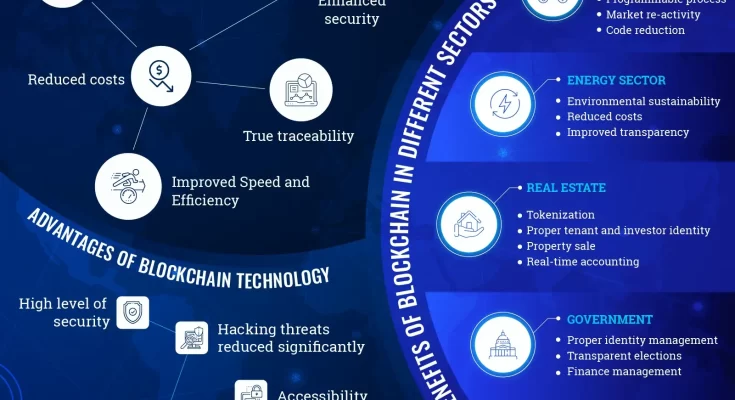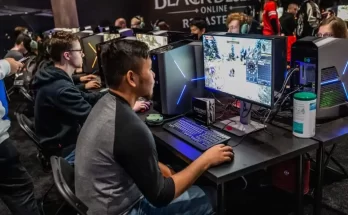In today’s rapidly evolving digital landscape, the gaming industry has witnessed exponential growth, introducing innovative technologies and immersive experiences for gamers worldwide. However, as the popularity of online gaming continues to soar, so does the concern for security risks and potential vulnerabilities. One technology that has emerged as a potential game-changer in addressing these concerns is blockchain.
Understanding Blockchain Technology
At its core, blockchain is a decentralized and transparent ledger that records and stores data across multiple computers or nodes. It operates on a distributed network, meaning there is no central authority controlling the system. Instead, all participants in the network validate and maintain the accuracy and integrity of the data.
The technology’s foundation lies in cryptography, ensuring secure and transparent transactions. Each transaction is encrypted and linked to the previous one, forming a chain of blocks. This chain cannot be altered or tampered with without compromising the whole system, making blockchain an ideal solution for enhancing security in various sectors.
Securing Gamer Identity and Data
Gaming platforms often require users to create accounts and share personal information, including payment details. However, these platforms are not immune to data breaches and cyberattacks that can compromise sensitive user data. By implementing blockchain technology, gaming companies can significantly enhance security measures to protect user identities and data.
A blockchain-based system would store user data in an encrypted format across multiple nodes, minimizing the risk of a single-point failure. Additionally, through decentralized identity management, users can have control over their personal information, reducing the reliance on centralized servers vulnerable to hacking attempts.
Preventing In-game Cheating
One of the persistent challenges in online gaming is the prevalence of cheating. Unscrupulous players often resort to cheats and hacks, compromising the integrity of the gaming experience for others. Blockchain technology offers innovative solutions to combat cheating and ensure a level playing field for all gamers.
Blockchain-based smart contracts can establish predefined rules and conditions within a game, leaving no room for cheating. These contracts are tamper-resistant, preventing players from manipulating game elements or exploiting vulnerabilities. Smart contracts can also verify and validate in-game items, ensuring their authenticity and preventing fraud in virtual economies.
Enhancing Digital Asset Ownership
In the gaming industry, virtual assets, such as skins, weapons, or in-game currency, hold significant value for players. However, without proper security measures, these assets can be stolen or lost. Blockchain technology revolutionizes the concept of asset ownership and security.
Using blockchain, gaming companies can create decentralized marketplaces where players can securely trade and sell their virtual assets. Each transaction is recorded on the blockchain, ensuring transparency and authenticity. The ownership of a virtual asset is permanently and immutably linked to a user’s blockchain address, reducing the risk of theft or fraudulent activities.
Verifying Game Fairness
Gamers often question the fairness of online games and suspect that game developers may manipulate certain elements to favor specific players or generate profit. Blockchain can introduce transparency and verifiability in game mechanics, ensuring fairness and building trust among gamers.
By recording and storing every game action and outcome on the blockchain, players can independently verify the authenticity and randomness of game results. Smart contracts can also be utilized to define game parameters and ensure that no party has unfair advantages, increasing confidence in the gaming ecosystem.
Conclusion
Blockchain technology has immense potential to revolutionize the gaming industry by addressing its security concerns. By leveraging the decentralized nature of blockchain, gaming platforms can enhance user data security, prevent cheating, improve digital asset ownership, and ensure fair gameplay. As the technology continues to evolve, it is crucial for game developers and gaming platform operators to explore and implement blockchain-based solutions to provide a secure and trustworthy gaming environment for players worldwide.



